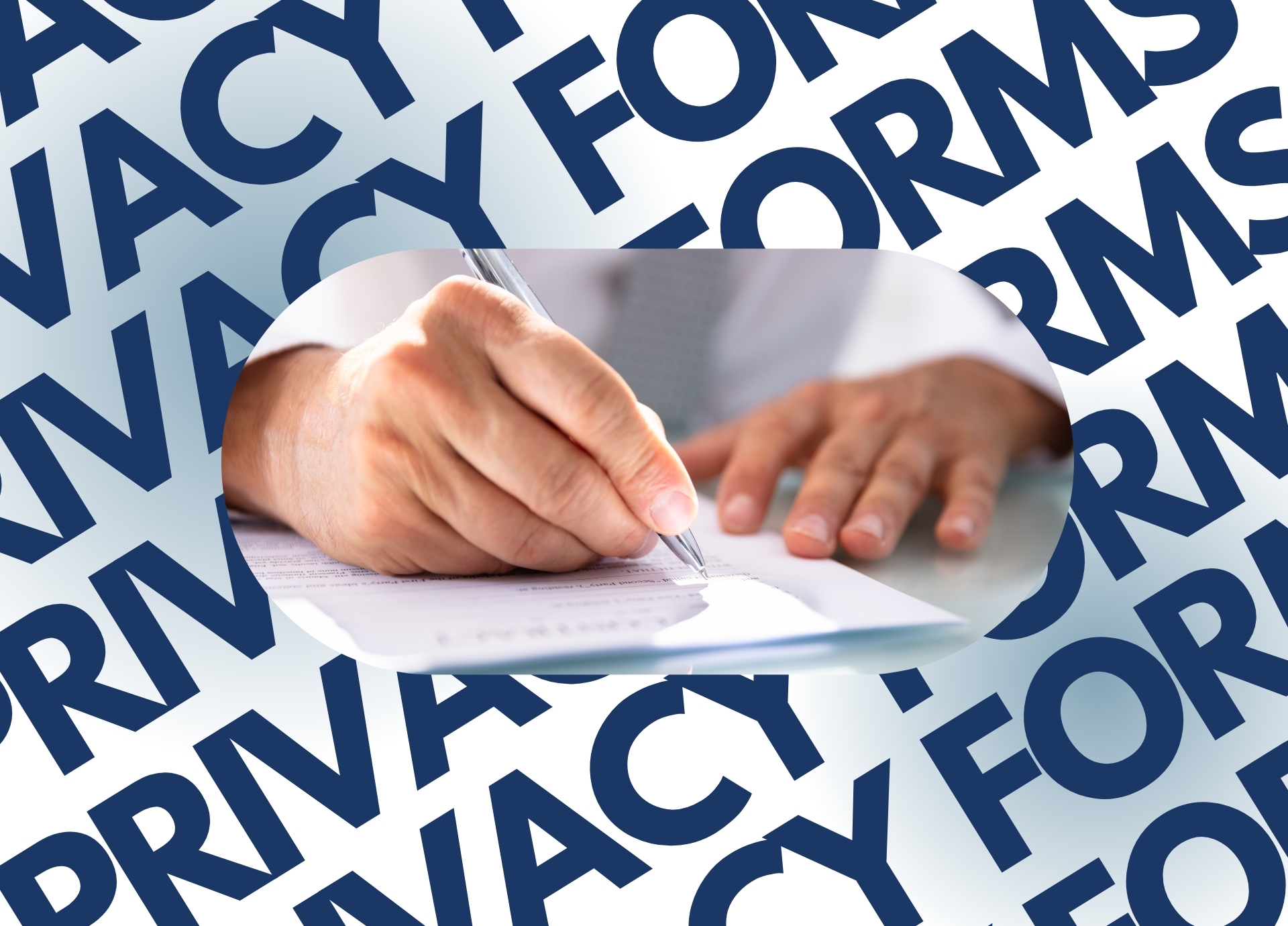
Table of Contents
HIPAA Privacy Forms for Patients
Importance of HIPAA Privacy Forms
In healthcare, protecting patient privacy isn’t just important—it’s required by law under the Health Insurance Portability and Accountability Act (HIPAA). This guide highlights the critical role HIPAA privacy forms play in safeguarding patient information. Exploring different forms and their purposes, we clarify how these processes protect patients’ rights and keep their sensitive health information confidential.
HIPAA Privacy Forms for Patients
HIPAA privacy forms are crucial in healthcare, making sure patient information handling meets the Health Insurance Portability and Accountability Act’s strict standards. These forms are more than just paperwork; they embody HIPAA‘s core values of transparency, consent, and patient rights.
Notice of Privacy Practices (NPP)
The Notice of Privacy Practices is a key HIPAA privacy form, given to patients at their first contact with a healthcare provider. It details how their Protected Health Information (PHI) may be used and disclosed, their privacy rights, and the provider’s obligations. The NPP builds a transparent, trust-based relationship between patients and providers.
Consent and Authorization Forms
Besides the NPP, HIPAA mandates consent and authorization forms for certain PHI uses and disclosures not related to treatment, payment, or healthcare operations. These forms must specify the information disclosed, its purpose, and the recipients, letting patients control their PHI.
Patient Preferences Documentation
HIPAA also requires documenting patients’ preferences for how they receive communication from their healthcare providers. This customization ensures providers respect patients’ wishes, further safeguarding their privacy.
Facilitating Patient Rights
These forms also enable patients to exercise their rights under the Privacy Rule, like accessing and amending their health records or getting an accounting of their PHI disclosures. This empowers patients to manage their health information actively.
HIPAA privacy forms are essential for compliance and uphold privacy and patient autonomy in healthcare. As the industry evolves with digital health records and telehealth, these forms’ role in maintaining patient trust and privacy is increasingly critical.

Key HIPAA Privacy Forms
HIPAA’s Essential Forms for Patient Privacy
The Health Insurance Portability and Accountability Act requires healthcare providers, plans, and clearinghouses to use specific forms to protect Protected Health Information. The Notice of Privacy Practices is a key document provided to patients on their first visit, explaining how their PHI can be used, their rights, and the provider’s privacy obligations. Providers must try to get a written acknowledgment from patients for receiving the NPP.
Authorization Form for PHI Disclosure
For uses and disclosures of PHI not related to treatment, payment, or healthcare operations, an Authorization Form is necessary. This form details the disclosure’s extent, who can release or receive the PHI, the information’s specifics, the disclosure’s purpose, and an expiration date for the authorization.
Request for Access and Amendment Forms
The Request for Access Form lets patients view or get copies of their health records. The Amendment Request Form enables patients to request changes to their PHI if they find inaccuracies, documenting the request and the entity’s response.
Accounting of Disclosures and Complaint Forms
The Accounting of Disclosures Form allows patients to document and request information on where their PHI has been shared, except for treatment, payment, and operations. If patients believe their privacy rights have been violated, they can file a grievance using a Complaint Form provided by the covered entity.
Restriction Request Form
Patients can use the Restriction Request Form to limit how their PHI is used or shared for treatment, payment, and operations. While entities are not required to agree to all restrictions, they must allow patients to submit these requests.
HIPAA forms play a critical role in protecting patient privacy and ensuring that healthcare entities comply with legal requirements. These forms are essential for documenting consent, managing PHI-related requests, and facilitating communication about privacy rights and preferences between healthcare providers and patients.

Importance of HIPAA Privacy Forms
Crucial Role of HIPAA Privacy Forms
HIPAA privacy forms are key in protecting patient rights and complying with federal regulations. They inform patients about their privacy rights under the Health Insurance Portability and Accountability Act and secure necessary patient consent or authorization. This documentation becomes vital during audits or investigations by the Office for Civil Rights (OCR), which enforces HIPAA compliance.
Responsibilities of Healthcare Providers
Healthcare providers must make HIPAA privacy forms easily available to patients, ensure they are properly completed, and keep them securely stored to protect patient information. It’s also crucial for healthcare organizations to regularly train their staff on the correct use of these forms. Such training ensures all personnel understand how to handle patient information, maintain compliance with HIPAA regulations and protect patient privacy.
Importance of HIPAA Privacy Forms
In summary, HIPAA privacy forms are fundamental to a healthcare provider’s efforts to protect privacy and comply with the law. They ensure patients are informed about their rights regarding their Protected Health Information and are a critical measure in safeguarding this information according to federal law. Effective management of these forms is crucial for maintaining patient rights, ensuring the confidentiality of health information, and proving compliance with the HIPAA Privacy Rule’s strict requirements.
HIPAA privacy forms go beyond mere paperwork; they are vital instruments that empower patients and safeguard their rights. From understanding your rights via the Notice of Privacy Practices to managing the use of your PHI with an Authorization Form, these documents guarantee that your health information receives the careful handling and respect it warrants. As healthcare progresses, being informed about your rights and the safeguards in place is crucial for confidently navigating your healthcare experience.
Q&A
Q: What is the Notice of Privacy Practices (NPP), and why is it important?
A: The Notice of Privacy Practices is a foundational HIPAA document that outlines how a patient’s health information can be used and disclosed. It’s crucial because it informs patients about their privacy rights and the entity’s legal duties, fostering transparency and trust.
Q: When do I need to sign an Authorization Form under HIPAA?
A: You’ll need to sign an Authorization Form for any use or disclosure of your PHI that isn’t related to treatment, payment, or healthcare operations—like for certain research purposes or when sharing information with third parties not directly involved in your care.
Q: Can I request corrections to my health records?
A: Absolutely. If you believe your health records are incorrect or incomplete, you can request an amendment through an Amendment Request Form. Your healthcare provider will review and respond to your request.
Q: How can I file a complaint if I believe my privacy rights have been violated?
A: You can file a complaint using the entity’s Complaint Form. Healthcare providers are required to offer a process for submitting privacy complaints, ensuring your concerns are addressed.




